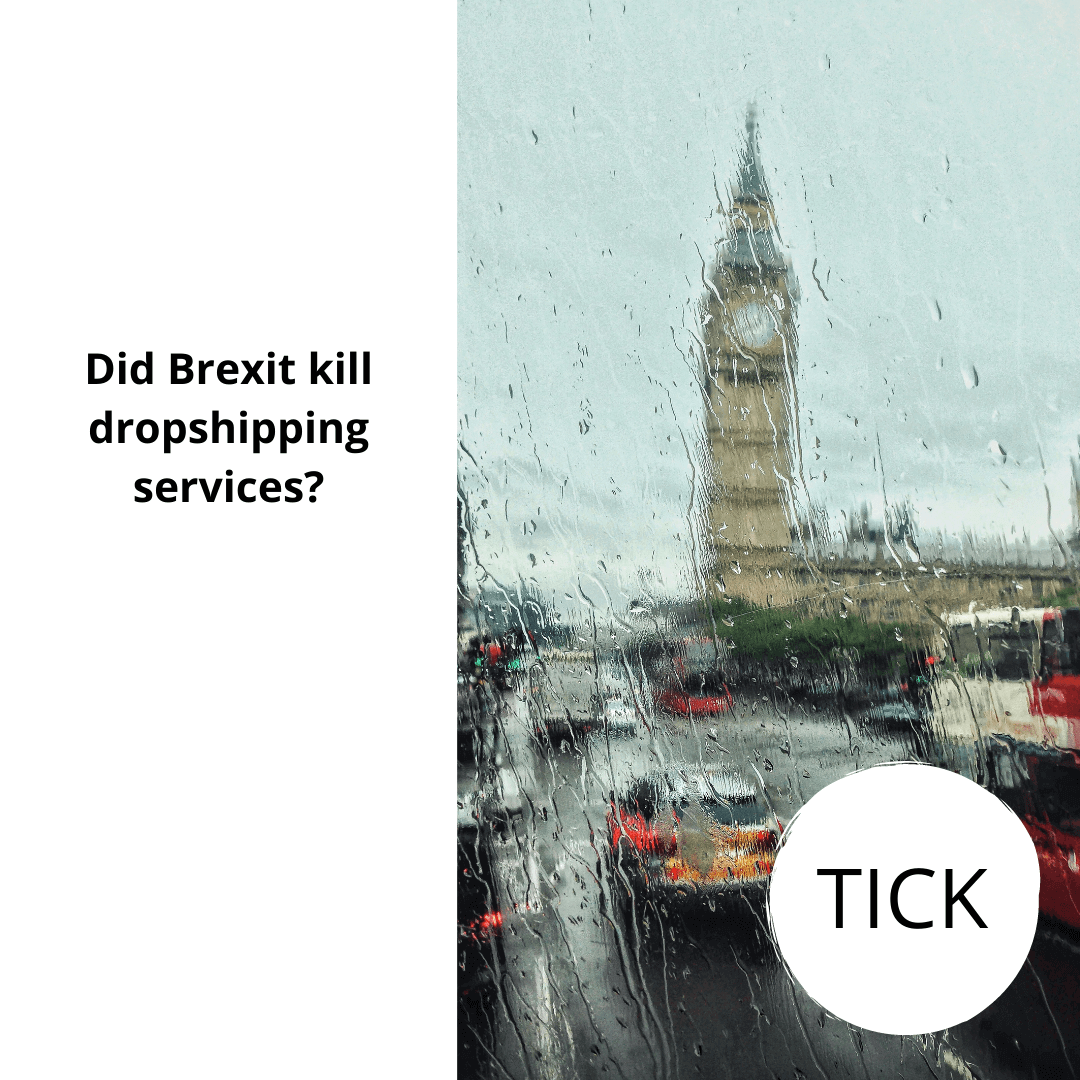Are the new VAT and customs duties resulting from Brexit choking the e-commerce dropshipping model? The complexity of import VAT, customs duties, product inspections and customs declarations are not favorable to the already very small margin of a model that has looked obsolete in recent times.
The decline of dropshipping has been triggered many times – citing declining profitability and poor customer service. But did the additional costs of Brexit kill the UK trade to the EU?
What is dropshipping?
Dropshipping is an online retail fulfillment model that allows retailers to promote and sell third party goods online (“dropshipper” or “dropshipping supplier”) as their own. When the seller then sells the product, he buys it from a third party who delivers it to the customer on behalf of the seller.
This model enables sellers to follow a low-cash start-up to rapidly transition to a global model, and has seen rapid growth across the globe in the past five years, thanks to platforms such as Etsy and AliExpress.
Friction over Brexit imports has hit the dropshipper sellers
The UK is leaving the EU VAT system and its customs union has imposed a number of burdens on sellers delivering goods between the EU and the UK. They include:
Import VAT – This is now due on all sales to UK consumers if goods are imported from abroad and the shipment is under £ 135 This is part of the UK e-commerce VAT reforms introduced on January 1, 2021. This requires foreign sellers to register VAT in the UK if dropshipping starts from outside the UK. The EU will introduce the same reforms, with a threshold of € 150, from 1 July 2021.
Customs declarations – All UK-EU online purchases must be accompanied by a CN22 or CN23 customs declaration. Since the seller is not responsible for fulfillment, he is dependent on the dropship supplier to do it properly to avoid delays and missed orders. It will also add seller’s dropshipper fees.
Commodity controls – As the UK has also exited the EU Single Market, the UK will introduce a number of commodity checks by 2022. The EU has already implemented them from 1 January 2021. Again, the seller is dependent on the dropshipper and will have to pay an additional fee.
Tariffs – The UK-EU Trade and Cooperation Agreement of 24 December 2020 sets a preferential tariff system for goods flowing between two countries. However, this requires strict adherence to the rules of origin control rules. This places additional compliance requirements on the shipper who passes the related costs on to the buyer.
The development of dropshipping
Dropshipping has grown significantly in the last five years with the help of e-commerce platforms like Etsy and AliExpress. The advantages of this are:
The seller does not have to invest cash in owning the shares;
It enables the seller to massively expand their own categories or inventory items and offer a better range of products to attract and retain more buyers; and
They can reduce shipping costs and border clearance issues for the merchant if they are able to identify dropshipping suppliers closer to their target consumers.
Maybe, you give up on trouble with shipping before Brexit?
However, the maturity and collapse of the online shopping model has occurred many times. As e-commerce matures, many negative features of drop shipping have been revealed:
low margins on the resale of goods;
poor quality control of dropshippers’ goods;
no customer support; and
problems with refunds.


